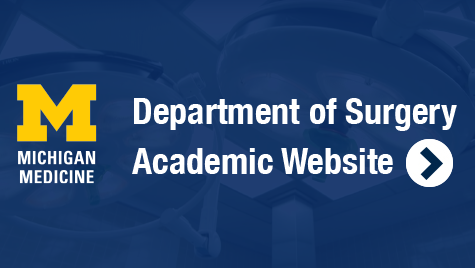Leveraging qualitative and quantitative research cores and many other resources, our health services investigators identify research questions, develop new collaborative proposals and share findings that make surgical care safer and more effective for patients. Impacts of Department of Surgery faculty-led research initiatives include:
Reducing Opioid Use
The Michigan Opioid Prescribing Engagement Network (OPEN) is attacking the problem of opioid addiction head-on in several ways. Led by Department of Surgery faculty, Dr. Jennifer Waljee and Dr. Michael Englesbe, Michigan OPEN research has led to:
- Development of opioid prescribing guidelines for 25 common surgical procedures
- Reduction in the size of opioid prescriptions following many surgical procedures, while improving pain control for patients
- Novel take-back programs that lessen the amount of leftover opioid medications in the community
- Widespread media coverage, including by National Public Radio and The New York Times in addition to peer-reviewed articles in The New England Journal of Medicine, JAMA Surgery, the Journal of Clinical Oncology and others.
Novel Surgical Coaching Initiatives
Faculty research on the connection between surgeon technical skill and patient outcomes, directed by Dr. Justin Dimick, has led to the development, implementation and evaluation of surgical coaching programs in bariatric surgery and colorectal surgery. These programs are helping surgeons improve their technical skills in the operating room, reduce complications and, as our research has shown, improve patient outcomes.
Policy Evaluation
Department of Surgery research also results in important analyses of and subsequent changes to healthcare and reimbursement policies, including Medicare payment reform, that impact patients and their care teams. Work in this area spans a wide range of medical conditions, surgical procedures and patient populations — state- and nationwide. Our goal is to identify those policies that lead to the best outcomes and lower costs.
Many of the Department's health services and outcomes research initiatives are funded through competitive National Institutes of Health R01 and T32 grants, the Michigan Department of Health and Human Services, Blue Cross and Blue Shield of Michigan/Blue Care Network and other sources.


